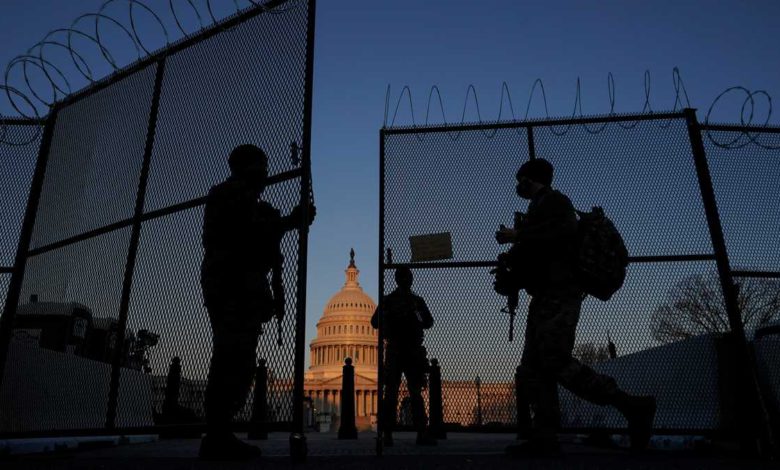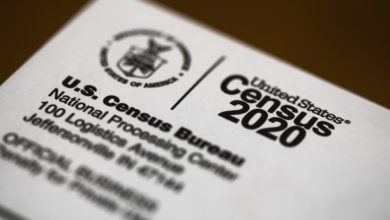

Nearly five months after being deployed to the U.S. Capitol to help quell the Jan. 6 insurrection, National Guard troops were set to leave and turn over security of the area to Capitol Police.Guard troops, their mission ending Sunday, were expected to be leaving on Monday, a person familiar with the plan told The Associated Press. The person was not authorized to discuss the plan by name and requested anonymity.The Pentagon announced earlier in the week that an extension of the Guard presence — 2,149 troops — had not been requested.The planned departure came as Democrats and Republicans sparred over how to fund fortifications of the Capitol and whether to form an independent bipartisan commission to investigate the attack that sought to overturn former President Donald Trump’s loss to Democrat Joe Biden. Related video: McCarthy pressed on fight over Jan. 6 commissionSome Republican lawmakers have begun downplaying the event despite the handful of deaths, injuries to scores of police officers, hundreds of arrests, damages to the building and shouted threats against lawmakers from many of those who stormed the building. Much of the violence was caught on camera.Retired Lt. Gen. Russel Honore, who oversaw a security review in the wake of the rioting, told CBS on Sunday that the Capitol itself will be secured by Capitol Police but that the complex will remain closed to the general public because of the strain on the police force.“God bless the National Guard,” Honore said. “They've done significant work.”The House on Thursday approved — by a single vote largely along party lines — a $1.9 billion measure to fortify the Capitol. The next day the House approved with 35 Republican votes the formation of an investigative commission. Both measures face an uncertain future in the evenly divided Senate. Minority Leader Mitch McConnell, R-Ky., has said he opposes the commission proposal, which would need significant Republican support to advance under Senate rules. Republican opponents say the commission would become a political tool as midterms elections approach, though the proposal requires its work to be concluded by the end of this year.
Nearly five months after being deployed to the U.S. Capitol to help quell the Jan. 6 insurrection, National Guard troops were set to leave and turn over security of the area to Capitol Police.
Guard troops, their mission ending Sunday, were expected to be leaving on Monday, a person familiar with the plan told The Associated Press. The person was not authorized to discuss the plan by name and requested anonymity.
The Pentagon announced earlier in the week that an extension of the Guard presence — 2,149 troops — had not been requested.
The planned departure came as Democrats and Republicans sparred over how to fund fortifications of the Capitol and whether to form an independent bipartisan commission to investigate the attack that sought to overturn former President Donald Trump’s loss to Democrat Joe Biden.
Related video: McCarthy pressed on fight over Jan. 6 commission
Some Republican lawmakers have begun downplaying the event despite the handful of deaths, injuries to scores of police officers, hundreds of arrests, damages to the building and shouted threats against lawmakers from many of those who stormed the building. Much of the violence was caught on camera.
Retired Lt. Gen. Russel Honore, who oversaw a security review in the wake of the rioting, told CBS on Sunday that the Capitol itself will be secured by Capitol Police but that the complex will remain closed to the general public because of the strain on the police force.
“God bless the National Guard,” Honore said. “They've done significant work.”
The House on Thursday approved — by a single vote largely along party lines — a $1.9 billion measure to fortify the Capitol. The next day the House approved with 35 Republican votes the formation of an investigative commission. Both measures face an uncertain future in the evenly divided Senate.
Minority Leader Mitch McConnell, R-Ky., has said he opposes the commission proposal, which would need significant Republican support to advance under Senate rules. Republican opponents say the commission would become a political tool as midterms elections approach, though the proposal requires its work to be concluded by the end of this year.
Source link








